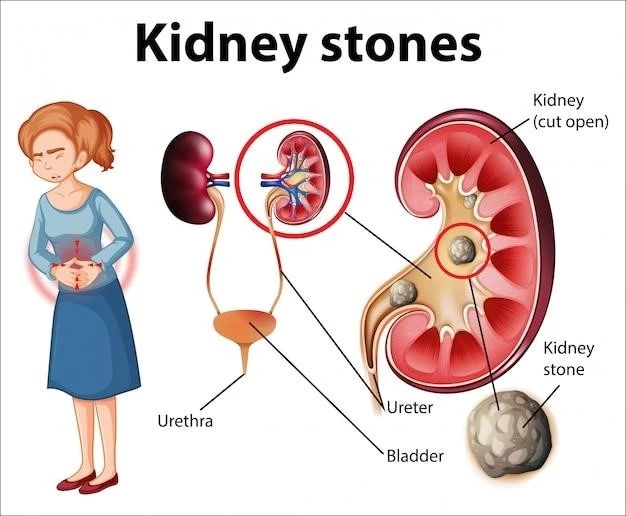Introduction to Polycystic Kidney Disease, Infantile, Type I
This disease traditionally known as Infantile Polycystic Kidney Disease is a genetic disorder characterized by cyst formation in the kidneys. These cysts can affect kidney function.
Definition and Overview of the Disease
Polycystic kidney disease, infantile, type I, also known as autosomal recessive polycystic kidney disease (ARPKD), is a rare genetic disorder characterized by cystic dilations of renal collecting ducts and developmental defects of hepatobiliary ductal plate remodeling; The condition is associated with significant morbidity involving the kidneys and liver. ARPKD typically presents in neonates or infants with bilateral enlarged echogenic kidneys, impacting renal and hepatic function.

Genetic Basis of Polycystic Kidney Disease, Infantile, Type I
Polycystic kidney disease, infantile, type I, known as autosomal recessive polycystic kidney disease (ARPKD), is a rare genetic disorder. It involves cystic dilations of renal collecting ducts and developmental defects of hepatobiliary ductal plate remodeling.
Inheritance Patterns and Genetic Mutations
The inheritance pattern of polycystic kidney disease, infantile, type I, follows an autosomal recessive mode, with mutations typically occurring in the PKHD1 gene. These genetic mutations lead to the characteristic cystic dilations seen in the renal collecting ducts and developmental defects in hepatobiliary ductal plate remodeling.
Clinical Presentation and Symptoms
Presenting in neonates or infants, Polycystic kidney disease, infantile, type I manifests with bilateral enlarged echogenic kidneys and may lead to pulmonary hypoplasia and other complications.
Varied Onset and Progression of Symptoms
Polycystic kidney disease, infantile, type I, presents with diverse onset and progression of symptoms, often appearing in neonates or infants with enlarged echogenic kidneys. This condition can lead to significant morbidity, including pulmonary hypoplasia and other complications.
Diagnostic Approaches for Polycystic Kidney Disease, Infantile, Type I
Diagnosing Polycystic kidney disease, infantile, type I typically involves imaging studies like ultrasounds to detect enlarged echogenic kidneys and may also include genetic testing to identify mutations in the PKHD1 gene.
Imaging Techniques and Laboratory Tests
Diagnosis of Polycystic kidney disease, infantile, type I involves imaging studies like ultrasound to detect enlarged echogenic kidneys, as well as genetic testing to identify mutations in the PKHD1 gene.
Management and Treatment Strategies
Management of Polycystic kidney disease, infantile, type I involves a multidisciplinary approach focusing on symptom management, maintaining renal function, and addressing potential complications like pulmonary hypoplasia;
Therapeutic Interventions and Care Plans
The management of Polycystic kidney disease, infantile, type I typically involves a combination of medical interventions focused on addressing renal and hepatic complications, along with providing supportive care to improve the quality of life for affected individuals.
Prognosis and Complications Associated with the Disease
Polycystic kidney disease, infantile, type I may lead to adverse outcomes like renal and hepatic functional impairments, impacting the overall prognosis of affected individuals.
Impact on Renal and Hepatic Function
Polycystic kidney disease, infantile, type I, can significantly impact both renal and hepatic function due to the cystic dilations in the renal collecting ducts and developmental defects of hepatobiliary ductal plate remodeling, leading to congenital hepatic fibrosis and renal functional impairments.
Research Advances and Future Directions
Ongoing research on Polycystic kidney disease, infantile, type I focuses on identifying novel therapeutic targets and potential treatment approaches to improve outcomes for affected individuals.
Current Studies and Potential Therapeutic Targets
Research on Polycystic kidney disease, infantile, type I focuses on identifying novel therapeutic targets and potential treatment approaches to address renal and hepatic complications associated with the disease.

Comparison with Other Types of Polycystic Kidney Diseases
Autosomal recessive polycystic kidney disease, infantile, type I differs from autosomal dominant polycystic kidney disease in terms of inheritance patterns, clinical presentations, and genetic mutations.
Contrasting Features with Autosomal Dominant Polycystic Kidney Disease
Autosomal recessive polycystic kidney disease, infantile, type I, differs significantly from autosomal dominant polycystic kidney disease in terms of genetic inheritance, disease progression, and organ involvement.
Epidemiology and Incidence Rates
Polycystic kidney disease, infantile, type I, is a rare genetic disorder that affects neonates and infants, with an estimated incidence rate of 1 in 20,000 children. This condition carries significant morbidity and mortality in this population.
Prevalence of Polycystic Kidney Disease, Infantile, Type I
Polycystic kidney disease, infantile, type I, is a rare genetic disorder with an estimated incidence of 1 in 20,000 children. This condition primarily affects neonates and infants, leading to significant morbidity and mortality.
Impact on Pediatric Population and Neonatal Health
Polycystic kidney disease, infantile, type I significantly affects the pediatric population and neonatal health, leading to challenges such as altered kidney function and potential complications that require specialized care.
Special Considerations for Infants and Children
Special considerations for infants and children with Polycystic kidney disease, infantile, type I include managing renal and hepatic complications early in life, monitoring growth and development, and providing comprehensive care to address the unique needs of pediatric patients with this condition.
Supportive Care and Patient Education
Supportive care for patients with Polycystic kidney disease, infantile, type I involves a comprehensive multidisciplinary approach focusing on symptom management, renal and hepatic function preservation, and patient education to enhance overall care and quality of life.
Importance of Multidisciplinary Approach in Patient Management
The management of Polycystic kidney disease, infantile, type I necessitates a multidisciplinary approach, involving various healthcare professionals collaborating to address the complex clinical needs of patients effectively.
Conclusion and Summary of Key Points
Polycystic kidney disease, infantile, type I, is a rare genetic disorder with significant morbidity and mortality, requiring specialized care. Early diagnosis, multidisciplinary management, and ongoing research are crucial for improving outcomes for affected individuals.
